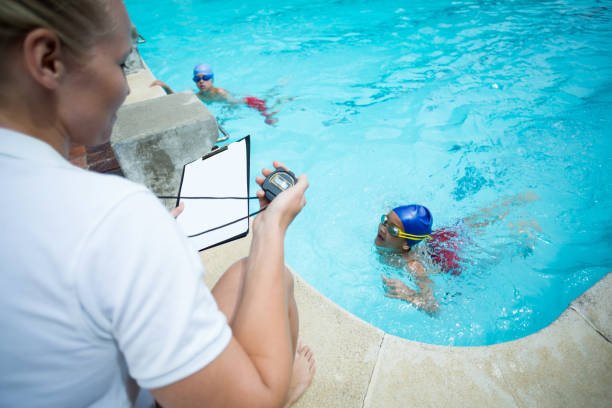When it comes to ensuring safety at beaches, pools, and other aquatic environments, one calling stands apart as the principal line of defense: lifeguards. Lifeguards are profoundly trained people answerable for preventing accidents, answering emergencies, and giving a feeling that everything is good to swimmers and beachgoers.
Through thorough lifeguard training and certification, these devoted experts have what it takes and information important to deal with possibly life-undermining circumstances.
In this article, we will investigate the significant job of lifeguards, the significance of lifeguard training, and the accessibility of lifeguard classes in California.
The Role of Lifeguards
Lifeguards play a pivotal role in maintaining safety and preventing drowning incidents. Their primary duty is to constantly scan the water and the surrounding area, ensuring that swimmers are safe and adhering to the rules. By being alert and vigilant, lifeguards can identify potential dangers and intervene before accidents occur.
They are trained to recognize distress signals, spot swimmers in trouble, and provide immediate assistance. Moreover, lifeguards possess strong swimming skills, allowing them to perform water rescues swiftly and efficiently.
Lifeguard training: Preparing for the Unexpected
To become a lifeguard, people should go through thorough training that furnishes them with the important abilities to deal with a large number of aquatic emergencies. Lifeguard training programs normally cover different subjects, including water salvage methods, medical aid, CPR (cardiopulmonary resuscitation), AED (automated external defibrillator) utilization, and crisis oxygen organization. These thorough courses guarantee that lifeguards are completely ready to answer actually to any circumstance they might experience.
Lifeguard training goes past hypothetical information. It incorporates useful activities and reproductions that reenact genuine salvage situations. These reproductions assist lifeguards with fostering their thinking skills, upgrade their actual wellness, and fabricate cooperation and relational abilities.
Lifeguard classes in California: A Path to Certification
In California, aspiring lifeguards can find various institutions and organizations offering lifeguard classes. These classes are designed to provide comprehensive training that meets the state’s lifeguard certification requirements. By enrolling in lifeguard classes in California, individuals can acquire the knowledge and skills needed to pursue a career in lifeguarding.
During lifeguard classes, students receive instruction from experienced professionals who guide them through the necessary skills and techniques. The curriculum typically includes water rescue drills, CPR and first aid demonstrations, and simulated emergency scenarios. These classes not only prepare individuals for their certification exams but also equip them with valuable knowledge and skills that they can apply throughout their lifeguarding careers.
Lifeguard certification: A Symbol of Competence and Dedication
Lifeguard certification serves as evidence that an individual has successfully completed the required training and possesses the necessary skills to perform lifeguard duties effectively. Obtaining lifeguard certification is often a requirement for employment at swimming pools, beaches, water parks, and other aquatic facilities. Employers seek certified lifeguards because they can trust in their competence and dedication to ensuring the safety of patrons.
By holding a lifeguard certification, individuals demonstrate their commitment to maintaining a high standard of safety and professionalism in their work. They are trained to prioritize prevention, respond to emergencies swiftly, and provide assistance in a calm and efficient manner.
The Importance of Continuing Education for Lifeguards
While lifeguard training provides a solid foundation of skills and knowledge, the learning process does not stop there. Lifeguards are encouraged to engage in continuing education to enhance their abilities and stay up to date with the latest advancements in water safety.
Continuing education programs offer opportunities for lifeguards to expand their expertise, learn new rescue techniques, and refresh their knowledge of CPR, first aid, and other essential skills. By participating in ongoing training and professional development, lifeguards can maintain their competence and readiness to handle any emergency that may arise.
Specialized Lifeguard training for Specific Environments
Not all lifeguarding situations are the same. Different aquatic environments present their own set of challenges and risks, necessitating specialized training for lifeguards. For example, lifeguards who work at water parks may require additional training in handling large crowds, managing water slides, and conducting water rescues in complex water features.
Lifeguards stationed at open water beaches might need training on rip currents, ocean currents, and the specific hazards associated with coastal environments. By undergoing specialized training tailored to the unique demands of their work environment, lifeguards can effectively address the specific challenges they may encounter.
The Role of the American Lifeguard Association
In the United States, the American Lifeguard Association (ALA) is an esteemed organization dedicated to promoting water safety and providing lifeguard certification and training programs. The ALA sets high standards for lifeguard training and certification, ensuring that lifeguards possess the necessary skills and knowledge to carry out their duties effectively.
The association collaborates with various institutions and training centers to offer comprehensive lifeguard classes programs that adhere to their rigorous standards. The American Lifeguard Association also works towards improving the professionalism of lifeguards and advocating for higher safety standards in aquatic environments.
Summary
Lifeguards are essential for maintaining safety in aquatic environments, and their role goes far beyond simple supervision. Lifeguard training, including lifeguard classes in California, equips individuals with the skills and knowledge necessary to prevent accidents and respond effectively to emergencies.
Continuing education and specialized training further enhance lifeguards’ abilities, allowing them to adapt to different environments and handle unique challenges. The American Lifeguard Association sets the standard for lifeguard certification and training, ensuring that lifeguards meet the highest levels of competence and professionalism.
By recognizing the importance of lifeguards and supporting their training, we can ensure the safety and well-being of swimmers and beachgoers.

